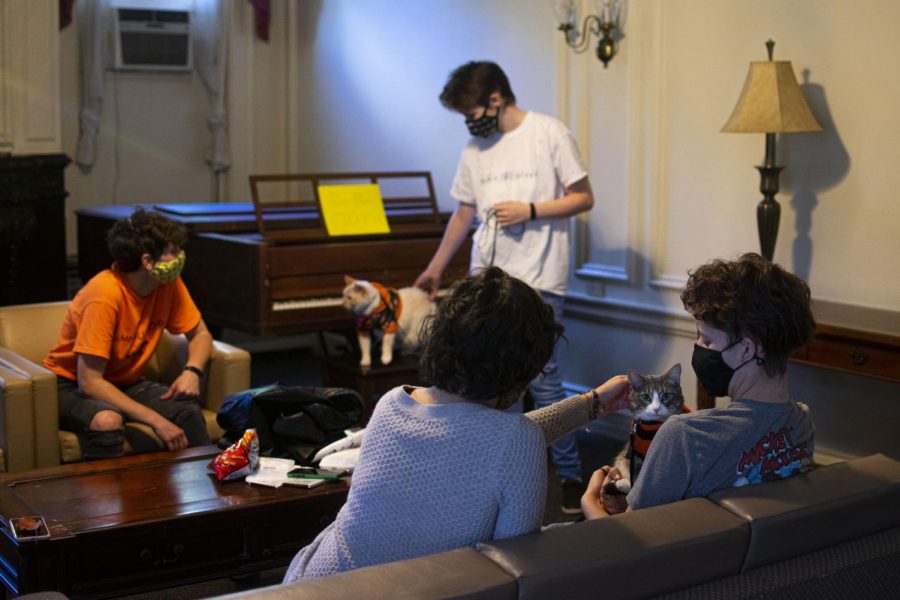Chatham’s Residence Life adjusts to COVID-19 with new policies
October 19, 2020
Chatham University’s campus life has drastically changed this year due to COVID-19 and new policies implemented by Residence Life because of the pandemic. Students, faculty and staff have had to overcome many challenges in an attempt to have a safe and successful school year.
One of the changes made by Residence Life was the number of students allowed to live on campus for the 2020-21 academic year. Chatham had 564 students living on its campuses in early September. Around that time last year, that number was 766.
“A pandemic was completely new,” said Shawn McQuillan, the director of Residence Life. “We started this work when the virus broke out. …We consulted with the Centers for Disease Control, their guidelines, as well as the Pennsylvania Health Department.”
Guidelines for those students who did choose to live on campus this fall remain fluid as COVID-19’s threat ebbs and flows.
At the beginning of the semester, rules for students living in on-campus housing were defined on the Chatham website. A special addendum for Terms & Conditions of Residency also was created for the 2020-21 year. It expressly acknowledges COVID-19 and requires students to comply with new policies.
Normally, first- and second-year students are required to live on campus, with few exceptions, but this requirement was lifted to help de-densify the dorms. Residence Life also set restrictions on occupancy in lounge or community spaces and prohibited all guests in dorms, unless they were also residents of the same building.
Residence Life is striving to take student feedback into consideration as it responds to the pandemic. The department is “being agile … because there’s something that’s going to come up that you didn’t think about,” McQuillan said.
One instance of recent changes can be seen in Chatham’s Residential Guest policy.
“A large number of residents who completed the guest survey wanted the guest policy to be revised to allow residents from other buildings to visit them,” McQuillan said.
In October, the Residential Guest policy was revisited, allowing on-campus residents to be guests in residential buildings other than their own. Commuters and off-campus guests are still not allowed to enter the residence halls or apartments.
On Oct. 16, that change to the guest policy was halted when Chatham elevated its operational alert level from “raised” to “high.” This shift means students are prohibited from visiting other students in their dorms and must limit outside activities to only essential needs, such as picking up meals, visiting the grocery store or pharmacy, receiving medical attention or going for a walk, through Oct. 25.
Students have had some difficulty adjusting to the rules and regulations set in place due to the pandemic.
“It’s a lot to get used to,” said Liam Sombar ‘23, who also lived on campus last year. There is “a dynamic of living alone … as well as not being able to have outside guests. … It has definitely been a different experience.”
He is optimistic, though, about the effectiveness of these new guidelines.
“I think Chatham, more so than a lot of other universities, has good policies and the students are trying very hard to keep the school open,” he added.
Despite the changes, Residence Life is still trying to create an enjoyable on-campus living experience. There are many activities on campus and other ways for students to safely get involved with college life and to create memories.
“COVID doesn’t mean there isn’t community,” McQuillan said.
Residence halls will close after Thanksgiving break, when classes will convert to a completely online format. No students will be able to enter the buildings unless they request and are given approval by the Office of Residence Life.
For the entire updated rule list, visit the COVID-19 Policies and Standards page on my.chatham.








